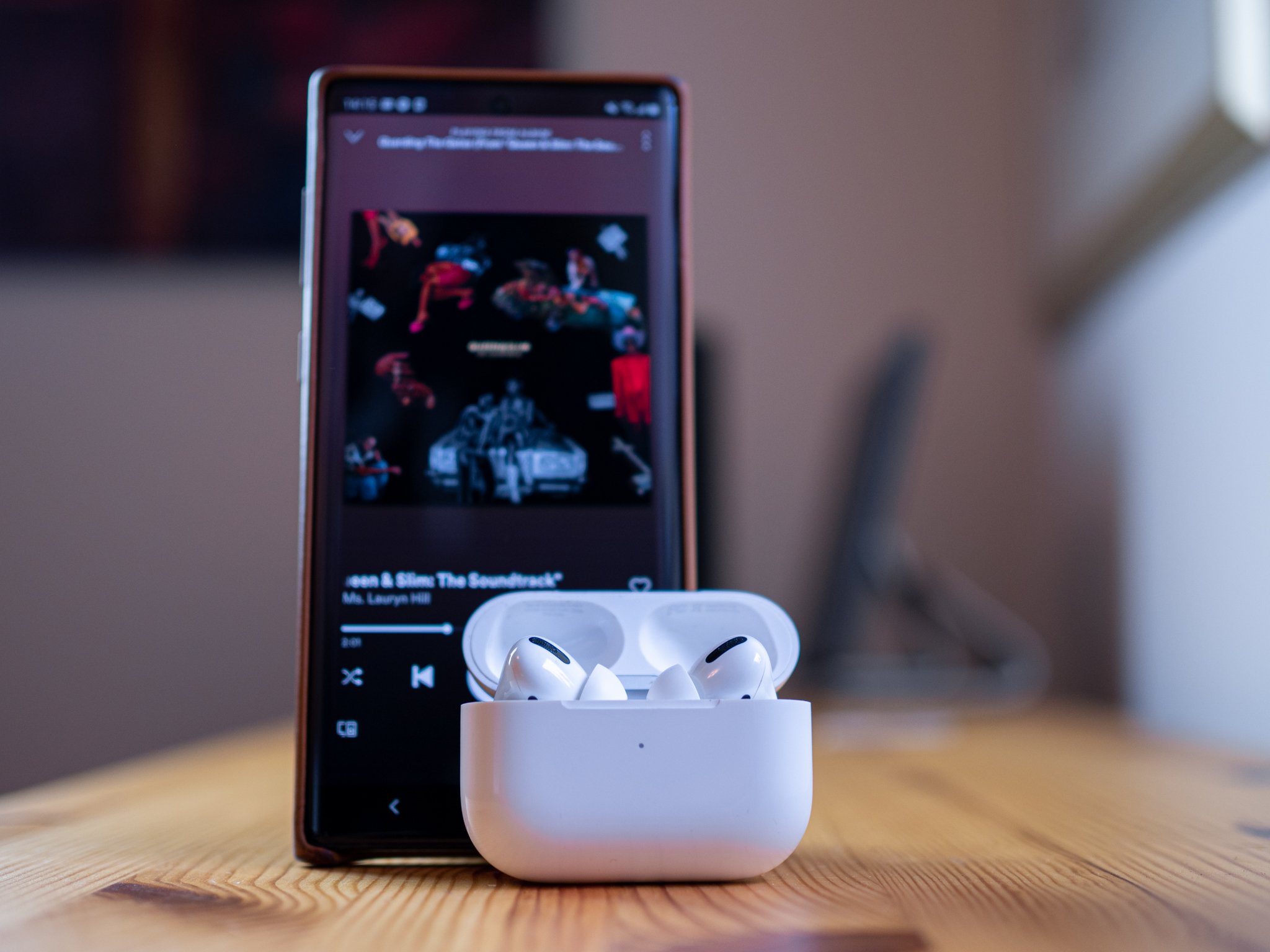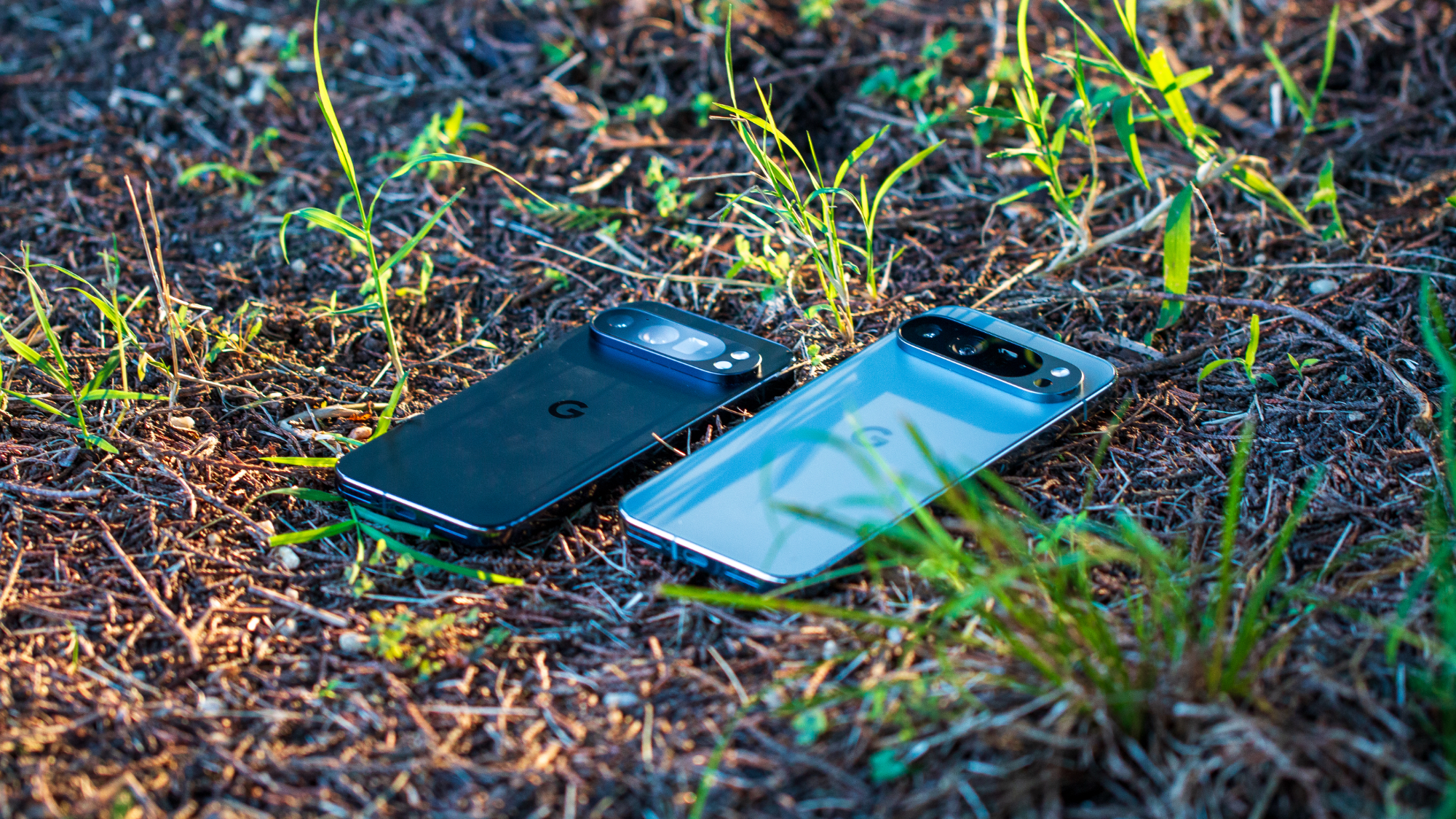Android Central Verdict
Bottom line: The AirPods Pro are amazing for users in the iOS ecosystem, but there are better options out there for someone primarily on Android. However, Apple's attention to detail and its focus on effective noise cancellation and a natural-sounding transparency mode, plus awesome voice call quality, make these worth considering for anyone.
Pros
- +
Best-in-class noise cancellation for earbuds
- +
Stem gestures are intuitive
- +
Transparency mode is outstanding
- +
Phone calls sound great
- +
Overall sound quality improved over AirPods
Cons
- -
Without iOS-only features, they're outclassed
- -
Audio quality easily beaten by the competition
- -
$250 is a bit much for these
- -
They charge via Lightning
Why you can trust Android Central
Here's the thing: like most Apple accessories, the AirPods Pro work best with Apple products. They're pretty great if you use an iPhone, an iPad, or a MacBook. They connect instantly and feature hands-free Siri along with sensor-based play/pause when you remove one or both earbuds.
See our best wireless earbuds.
But with Android phones, the AirPods Pro are just another pair of true wireless earbuds, albeit ones with excellent noise cancellation, some handy capacitive controls, and a relatively portable case. But that doesn't stop people from thinking about buying them over the competition. But back in 2016, when the first AirPods were released, there weren't a lot of better options for Android users. Now there are.
So, should you buy them if you're outside of the Apple ecosystem? Let's take a look at the, um, highs and lows.
AirPods Pro What's good for Android users

The AirPods Pro sound a lot better than their predecessors, and along with the addition of active noise cancellation, somewhat justify their $250 price tag. But the reality is that in the intervening years between the release of the original AirPods and today, most companies that make headphones have released competitive products in the category. My current true wireless daily drivers are the Jabra Elite 65t, soon to be replaced with the smaller and USB C-powered Elite 75t (which I'm also reviewing right now and have quickly fallen in love with).
It doesn't matter what devices the AirPods Pro are connected to: their noise cancellation, transparency mode, and comfort are best in class.
But AirPods do a lot of things right, even if you don't benefit from all the platform stuff inherent to iOS and macOS. The proprietary silicone tips are very comfortable — in fact, these are among the most comfortable earbuds I've ever worn. In the box you'll find three sizes, and I had to switch out the default medium for your-ears-are-ginormous large before finding a great seal. Android users don't get to benefit from the on-device testing iPhone owners can do, but I found it to be largely useless: when paired to my iPhone 11 Pro, I was told I had an adequate seal using the smallest ear tips, even though they were super uncomfortable.
Android users also don't get to change any of the default settings, so you'll need an iOS device to decide whether a long-press of the Pro's shorter stems cycle between active noise cancellation, transparency, or nothing at all. Still, those stem-based controls are great and work incredibly well. Say what you will about how the AirPods Pro look — I actually like them, especially compared to the originals — but moving the controls to the stem was an inspired engineering and design decision.
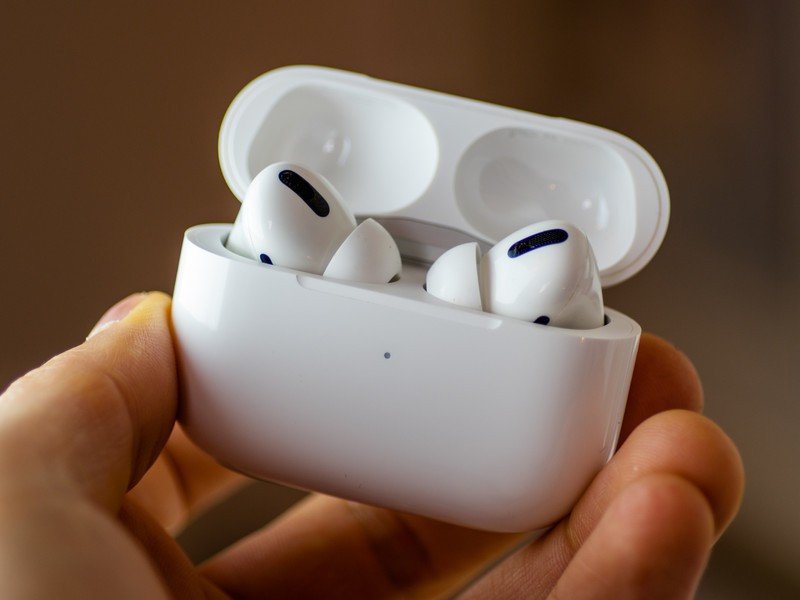
I'll get this out of the way now: the AirPods' active noise cancellation is really good. It's not quite at the same levels as Sony's WF-1000XM3, but it's good enough to make even the loudest of environments somewhat more tolerable. I didn't want to review these until I used the AirPods Pro on a plane to cancel out noise — I flew from Toronto to L.A. and for the first time didn't bring over-the-ear headphones — and they did as good a job as one would expect from a form factor that only uses small silicone tips to block noise passively.
It's really the convenience of not having to lug around huge noise-canceling cans that make these earbuds worth the investment if ANC is a priority.
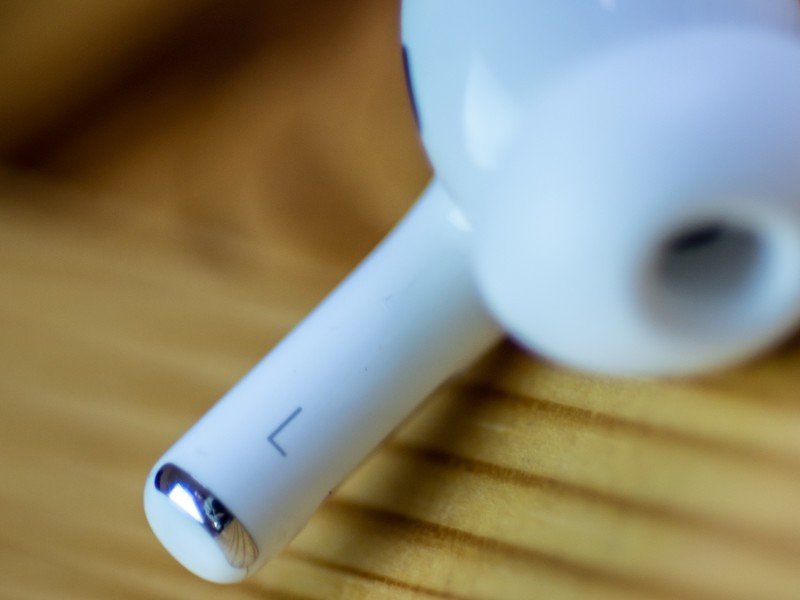
But perhaps even more impressive is the AirPods' transparency mode, easily activated by squeezing the aforementioned stems for a second. This is far from the only pair of earbuds that use the built-in microphones to pump sound in from the outside, but these do it the best. By far. Part of it is the comfort — I can barely feel anything in my ears while wearing the AirPods Pro — but it's also how natural it feels. The microphones are sensitive and accurate enough that the sound being captured sounds like what's actually happening in the outside world. It's not processed or compressed, it's just exactly what you'd expect to hear if you aren't wearing any headphones at all.
Another area the AirPods Pro excel is an area for which the originals are consistently lauded: phone call quality. When connected to any Android phone with a solid Bluetooth connection, people told me the AirPods Pro were practically indistinguishable from holding a phone up to my ear.
AirPods Pro What Android users should worry about
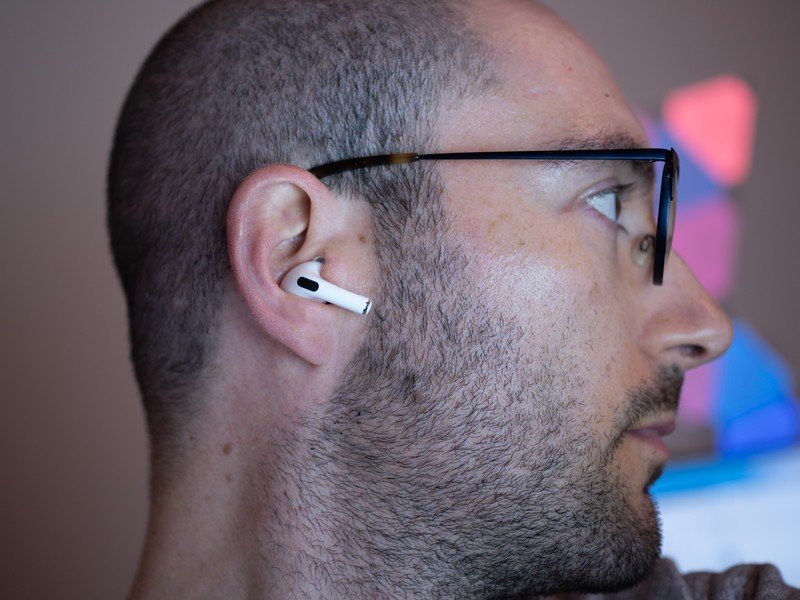
I really like the AirPods Pro, but not having the advantages of the iOS ecosystem for which they're designed is a problem when used as any other pair of Bluetooth earbuds connected to an Android phone.
For example, they don't automatically connect to any Android phone I've paired them to; I have to manually connect every time. That's enough to turn me off the experience entirely, but it gets worse.

When connected to an iPhone or iPad, whatever's playing is automatically paused when one or both of the buds are removed from the ear. On Android? Nope. Said feature isn't exactly common on other products in the category, but it's convenient enough that it makes me miss my Jabras every time music stupidly keeps playing.
And unlike my Jabras — and unlike the original AirPods, to be honest — I found that the AirPods Pro have trouble maintaining a stable connection to many of my Android phones. I've primarily used them with the Pixel 4 XL and the Galaxy Note 10, and while they're usually fine, occasionally they'll disconnect and the right one will immediately fire up again, with the left one taking a moment or two to resync. These are typical Bluetooth issues, but I was lucky enough to avoid them on Android with the original AirPods.
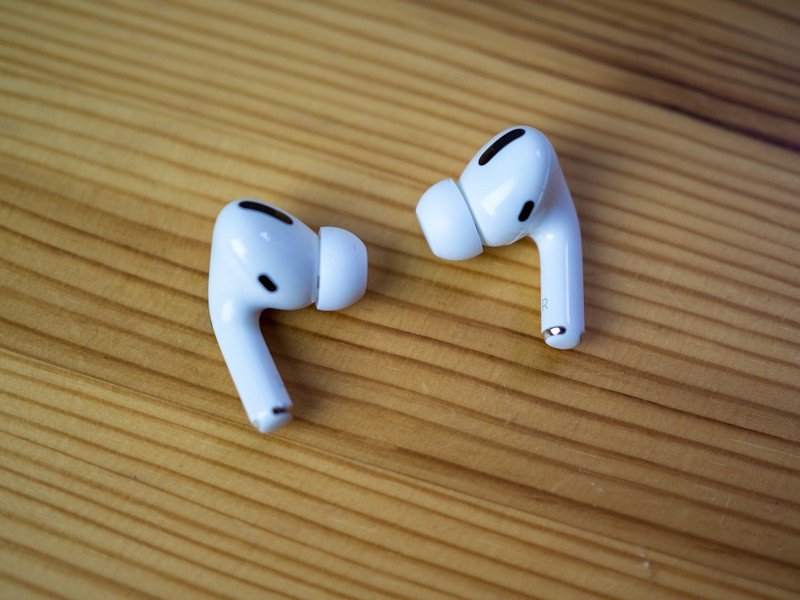
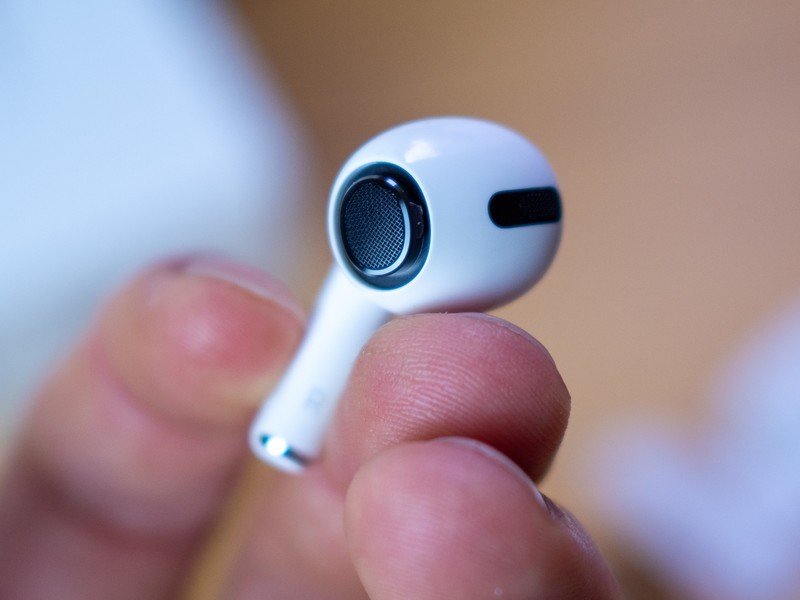
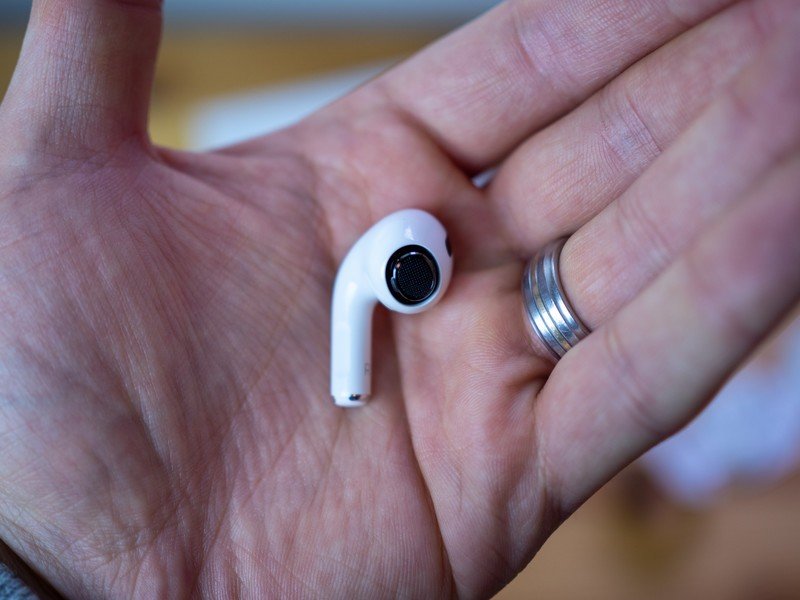
Source: Daniel Bader / Android Central
Onto music, the quality is just OK. These are a huge step up from the originals, largely because there's both passive and active noise cancellation, so you're not forced to play the source at full blast just to pick up a bit of low-end. But I've heard better for a lot less money, and because you're missing out on so many iOS-specific advantages, it's hard to recommend these for Android users the way I confidently could when the AirPods were originally released in 2016.
Charging via Lightning is annoying to most iOS users; to Android users, it's just insulting.
Worse is that the AirPods Pro still charge via Lightning, which is unfortunate. I appreciate that Apple includes a USB-C to Lightning cable in each box, but if I'm bringing the AirPods Pro around with me, they're usually the only product that charges via Apple's standard — both my MacBook Pro and iPad Pro use USB-C these days. Come on, Tim.
Finally, at just under five hours per charge with ANC enabled, the AirPods Pro last just long enough to avoid being annoying (and being able to slip the diminutive case into a pocket is also helpful), but the uptime isn't mindblowing, especially coming from the Soundcore Liberty 2 Pros or Sony WF-1000XM3s.
Should Android users buy the AirPods Pro?

I'm torn: on the one hand, I think Apple's application of noise cancellation and transparency mode is unmatched; there are plenty of options that do one of those things well, but none that do both so effortlessly. Plus, the AirPods Pro are really comfortable, almost to the point of disappearing into the ear. That, and the fact that the gesture controls are as intuitive as they are, make using the AirPods Pro, even on Android, a dream.
3.5 out of 5
But then there's the reality that at this price (and much cheaper, actually) you have much better options in the category, many of which, like the new Jabra Elite 75t, have companion Android apps that offer custom equalization, editable gesture controls, better sound quality, superior battery life, and more. The AirPods Pro don't seamlessly switch between Android devices like they do on iOS, nor do they have any customization; they're just dumb Bluetooth earbuds.
This isn't a surprise: Apple designs the AirPods Pro and all of its other accessories to work best within the iOS ecosystem. It's called lock-in for a reason. But the AirPods have always had that weird dual life as just a decent pair of Bluetooth earbuds.
If you're someone who can live with these significant compromises in the name of comfort and convenience, you'll probably learn to love the AirPods Pro when connected to an Android phone. Just keep an iOS device handy, just in case.
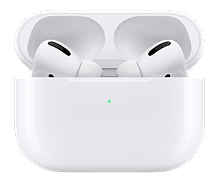
Don't cancel your plans for this noise cancellation
The AirPods Pro are amazing for users in the iOS ecosystem, but there are better options out there for someone primarily on Android. However, Apple's attention to detail and its focus on effective noise cancellation and a natural-sounding transparency mode, plus awesome voice call quality, make these worth considering for anyone.
Daniel Bader was a former Android Central Editor-in-Chief and Executive Editor for iMore and Windows Central.
